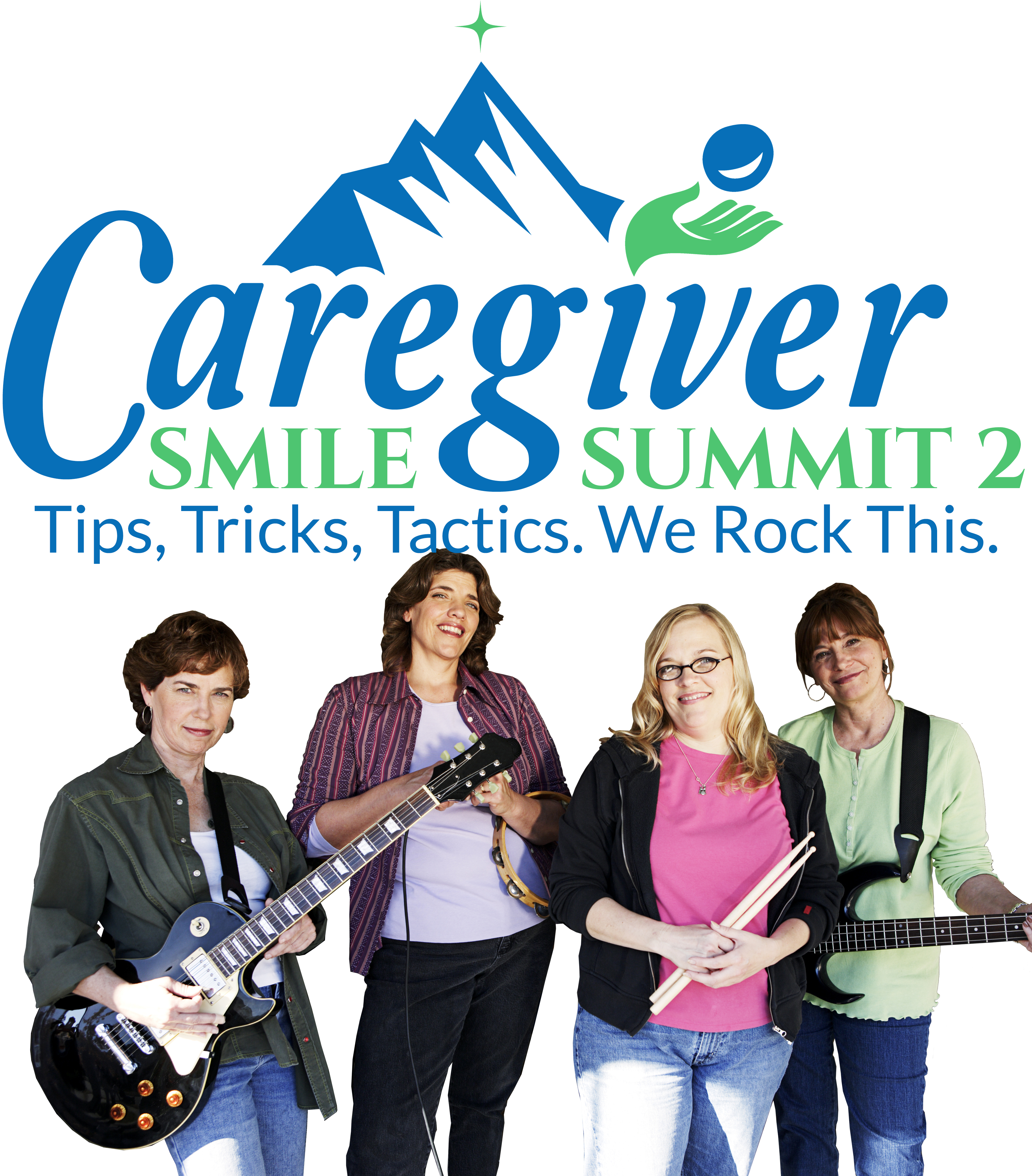Caregiver Smile Summit 2 – Register now for just $25
Caregiver Smile Summit 2 – Register now for just $25
Our second Caregiver Smile Summit is being planned and we will announce our experts soon. You can take advantage now by pre-registering for our second Summit for the crazy low price of just $25!
That’s right. Twenty-five bucks! We have more than 30 experts lined up to address topics in the following categories.
- Making Life Easier
- Caregiver Stress and Health
- Family Dynamics
- Aging in Place
- Senior Isolation
- Health and Safety
- Senior Sexuality
- The Shifting Demographics of Caregiving
- Legal and Financial Caregiving
- Caregiving in the Workplace
- After the Caregiving is Over
- Deep Dive on Dementia Care
The Caregiver Smile Summit was shortlisted in the IDEO Caregiver Challenge, sponsored by United Health and AARP.
– It’s a great value!
- It’s yours forever – Once you purchase the all-access option, you
have access to the videos all the time.
– It will make your caregiving journey easier and less stressful.
– It will help improve your own health.
Recently I purchased your Virtual Caregiver Smile Summit. I am so impressed with the warmth and quality of your interviews and the professional and valuable content of your experts! I ended up spending my holiday weekend watching all the videos, and actually canceled other plans because it was so good. I want to thank you for putting this together and making it available. I am recommending it to all my colleagues. Debby Bitticks, Intergenerational Expert, Award-winning Author, Health and Caregiving Advocate.
Register today.
August 7 – National Night Out is for All Ages
NATIONAL NIGHT OUT IS AROUND THE CORNER
HELP MAKE YOUR NEIGHBORHOOD AN EVEN BETTER PLACE TO LIVE!
· More Neighborhood Safety Tips—ask neighbors to turn their outside lights on at night. A well-lit neighborhood makes crime more difficult. Remind residents to lock their car doors and garage doors every night. A closed garage door can be lifted open and burglars can enter your home through your garage door. Encourage neighbors to alert each other if they notice anything suspicious at your home or if you leave your garage door open. If you are going to be on vacation or gone for an extended period of time, let a trusted neighbor know so they can keep an eye on your home. If a resident is expecting a package to be delivered, encourage them to have the package shipped to their office or a neighbor who is home during the day who can accept the package.
Some neighborhoods set-up “drive-through’s” where residents take turns driving the neighborhood watching for suspicious parties and potential crimes. However this may put your fellow neighbor at risk for possible danger if they happen on a crime in progress. If your neighborhood wants to pursue this watch method, be sure there is a safe action plan in place such as calling the police without engaging the criminals. If everyone works together to watch out for each other, crime will be more difficult.
Aging in Place Technology Watch – Laurie Orlov – Smilecast 147
Want to know about the most intriguing technology coming down the pike and how older adults will adapt and change to it? This is your session. Find out if and how senior living providers are keeping up to fill the needs of boomers and elders.
Read more about our expert – Laurie Orlov
Laurie M. Orlov, a tech industry veteran, writer, speaker and elder care advocate, is the founder of Aging in Place Technology Watch — market research, trends, blogs and reports that provide thought leadership, analysis and guidance about technologies and services that enable boomers and seniors to remain longer in their home of choice.
Podcast: Play in new window | Download
Subscribe: Apple Podcasts | RSS
Our Friday Song of the Week – Stay with Me
Our Friday Song of the Week – Stay with Me
Senior Divorce – Segment from Charlotte Today Program
Senior Divorce – Now What?
Among U.S. adults ages 50 and older, the senior divorce rate has roughly doubled since the 1990s, according to a Pew Research Centerreport. What has been called “gray” divorce is often attributed to the fact that people are living longer. But there are other factors at work driving this.
The blessing and curse of a longer life has people re-evaluating. The idea of staying in an unhappy situation for the sake of whomever and whatever is no longer appealing when faced with possibly 30 more years of life. People want to live that life.
There is a reduced stigma in society toward divorce and baby boomers are no stranger to it. And remarriages tend to not last as long. Among all adults 50 and older who divorced in 2015, 48% had been in their second or higher marriage. In some cases, not all, both husband and wife are financially stable independently to move on.










